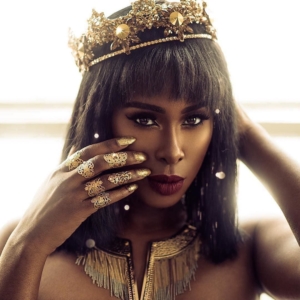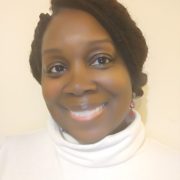New Math
Dear [REDACTED],
At first, I stared at your e-mail and blinked a few times, thinking that perhaps my contact lenses were blurry. It said, “Thank you for your interest in employment with [REDACTED]. Your application was received and carefully reviewed. However, based on the information you submitted, it was determined you did not meet the minimum training and experience required.”

“Your resume is so impressive!”
No, I was reading it correctly, but it still didn’t make any sense. See, my last employer was five times your size, and I held a nearly identical position to the one for which I applied. What kind of new math are you using? If this weren’t the eleventh time that I’d received such a reply—or no response at all—I would call the HR office directly and contest your rejection.
But I’m tired of this whole charade. Tired of the backhanded compliments where you tell me how “impressive” my resume is and then proceed to explain that I’m also “too confident” or “too intimidating” or “not the right fit.” I’m tired of jumping through hoops, tired of tap dancing. Tired of being the “First Black This” or the “Youngest Female That.” Tired of having to fight you just to get paid what I’m worth. Tired of collecting degrees and experience, only to be told that I’m Still. Not. Enough.
And you always have reasons. So many reasons. The ones you state out loud are perfectly plausible: I’m underqualified, or I’m overqualified; we’re in a recession, or we just got out of a recession; you’re going in a different direction, or you decided not to fill the position at all. But it is the reasons you don’t say that tell the rest of the story. The reasons I can’t say aloud either, lest I be labeled “bitter” or “angry” like the last black woman you hired. And we all know how uncomfortable you get when black women are angry.

This was your recruitment poster. I feel duped.
But did you know that black women are the most educated people in this country? We attain advanced degrees at far higher rates than any other group. That’s become a very popular statistic, shared with pride and awe at our hard work and achievements, but that’s what black women have always done: work hard and overcome obstacles. So that doesn’t impress or surprise me. Not because it isn’t impressive, mind you, but because I know what it’s really about. See, what they don’t share alongside that data about black women’s educational attainment, is the degree to which we aspire to positions of leadership—at almost three times the rate of our white female peers, and yet we’re perpetually underrepresented in C-suites, boardrooms and halls of power. Lean In wasn’t written for black women. Hell, black women invented leaning in and then turned it into a dance. But still we think, “Maybe if I get one more degree, take on one more project, achieve one more milestone, maybe…it will finally…be enough.”
Lean In wasn’t written for black women. Hell, black women invented leaning in and then turned it into a dance.
It can eat away at you if you let it, that feeling of knowing you’re capable but not being acknowledged for it. It’s like being invisible. I imagine that’s how Katherine Johnson and her NASA coworkers felt. Did you see that movie, Hidden Figures? Katherine Johnson was a mathematical genius who, along with other black women, were hired as human computers to do calculations for the male engineers trying to put a man on the moon. They worked in an area that was segregated from the rest of the Langley Research Center, until they had to step up and save the mission. Everyone kept saying it was the “feel good movie of the year,” but it just irritated me. What is so inspiring about watching a bunch of white men shoot themselves in the foot while the black women with all the answers aren’t even allowed in the room? John Glenn almost died and the United States nearly lost the Space Race before these women were allowed just to do their jobs.

The Invisible Woman (Image by © Beau Lark/Corbis)
If you haven’t even seen Hidden Figures, then I’m sure you’ve never heard of Charlotte Ray. She was the first black female attorney in the United States. She graduated from Howard Law School at 22 years old and was admitted to the D.C. Bar the same year. Then she became the first woman, of any race, admitted to argue before the Supreme Court of D.C. Her legal intelligence was undisputed, but do you know what she got for all her accomplishments? She had to close her law firm because no one would hire a black woman to represent them. Instead, the first black woman attorney in America moved back home to New York and taught public school.
And don’t dare tell me it’s gotten better since then, as if Katherine and Charlotte don’t have a debt to be paid. I don’t know how they kept their souls from shriveling up like a raisin in the sun. Some days, I don’t know how I do. It’s maddening to be dismissed in spite of your abilities, to be ignored to the point where you doubt your own existence. Did they recite the same futile affirmations as me in their mirrors, I wonder, steeling themselves against a world indifferent to their brilliance? They say a person’s value does not decrease based on someone’s inability to see their worth…but their paycheck certainly does. No amount of affirmations, self-love or leaning in can make up for more than $713,000 in lost income. That was the average amount a college-educated woman could expect to lose over a 40-year career. In 2017. I dare say Katherine and Charlotte would be disappointed.
What’s ironic is that you have problems that black women can solve, but you look right through us. We are the descendants of miracle workers, refined in the fires of oppression. Black women gave birth to this world. Why would it surprise you that we know how to heal it? How much untapped human potential is wasting away before your eyes? How many technological breakthroughs, medical miracles, diplomatic victories and social advancements are we missing out on because this world refuses to see black women’s greatness? Because you don’t see our greatness.
Black women gave birth to this world. Why would it surprise you that we know how to heal it?
Thank God for Bessie Coleman who, after being rejected by every flight school in the United States, moved to France instead to become the first black woman to earn a pilot’s license. Thank God for Raven Wilkinson, who persisted even when racism nearly sidelined her dance career. Thank God for Audre Lorde, who didn’t let discrimination or cancer silence her. Because of them, I will persist. Because God blesses the child that’s got her own.

This #blackgirlmagic isn’t free.
You’re probably wondering why I’m unloading on you like this. You might be thinking this is unfair, uncalled for. After all, your e-mail to me was three measly sentences. I mean, you hardly even know me. But you are a symbol, a proxy for those whose hubris and fragility render black women invisible. For those whose identity is rooted in our subjugation. Because you want our ideas, our labor and our magic, but you don’t want us. Because you could stand before me, and with a straight face, tell me I don’t exist.
So I reject your rejection. I reject whatever calculations you make that lead you to believe that I’m not enough, that we’re not enough. I reject your new math, because it’s just as backward as your old math, because it doesn’t add up.
While you may choose not to see what is right in front of you, I demand to be seen. I don’t need your permission to be great; I have no choice but to be great. My ancestors will accept nothing less. I will serve, and I will speak, and I will write, and I will live, and I will win. Because I. Am. Enough.
Sincerely,
A.D. Lowman
 A.D. Lowman is a management professional, consultant and community leader. Her leadership and career advice has been featured in Essence, Money and Diversity Woman magazines. She is pursuing her MFA in Creative Writing at Antioch University Los Angeles where she serves as a blogger, interviewer and assistant web team manager for Lunch Ticket.
A.D. Lowman is a management professional, consultant and community leader. Her leadership and career advice has been featured in Essence, Money and Diversity Woman magazines. She is pursuing her MFA in Creative Writing at Antioch University Los Angeles where she serves as a blogger, interviewer and assistant web team manager for Lunch Ticket.





